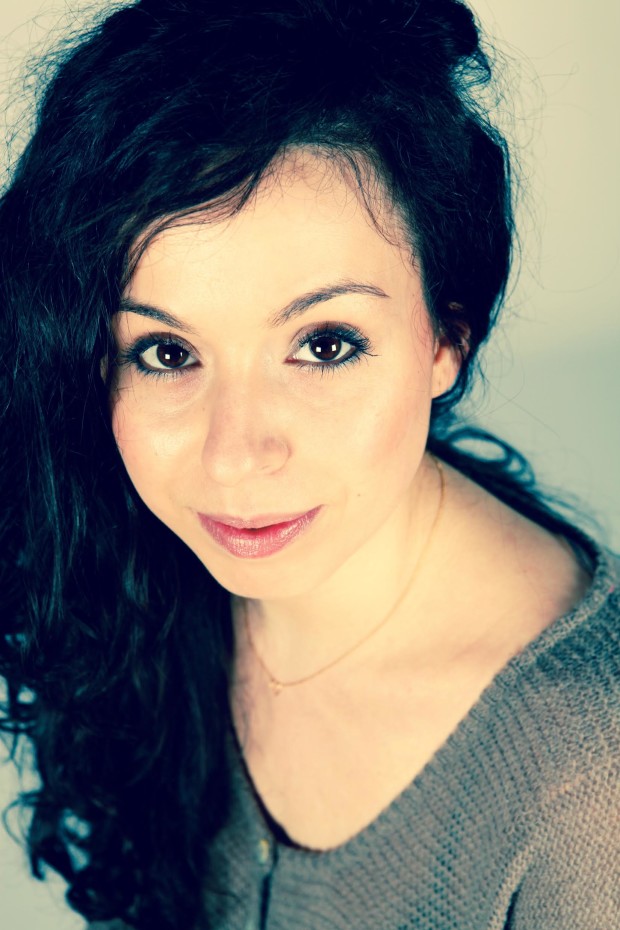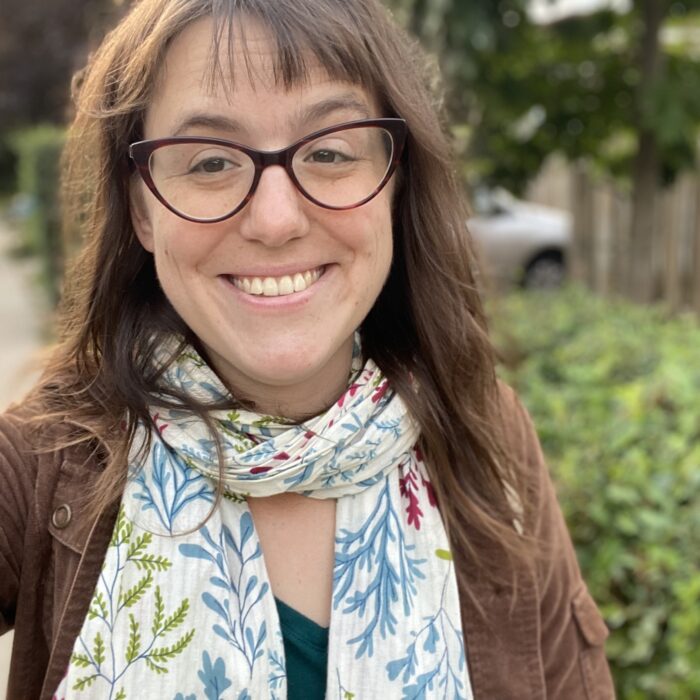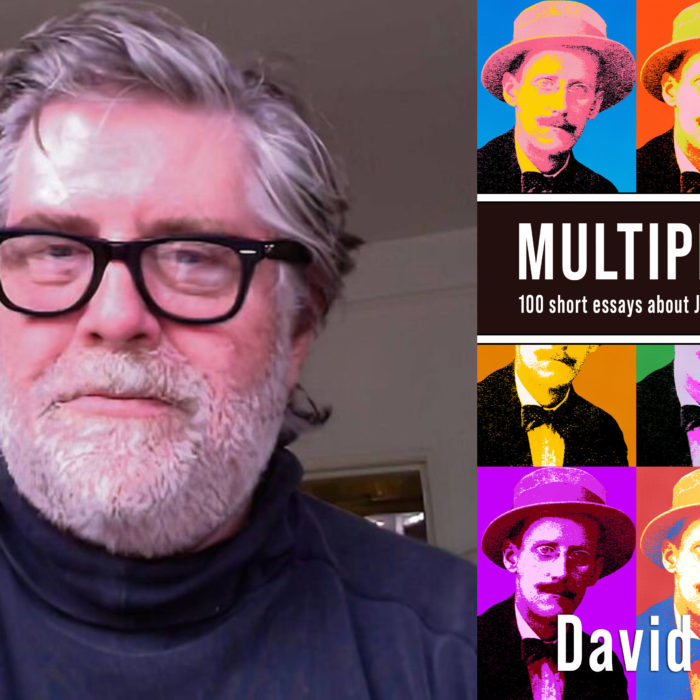You have no items in your cart. Want to get some nice things?
Go shopping
Starting this week, the Southwark Playhouse plays host to Darknet, the latest play by Rose Lewenstein. The play, which engages with the deep web and our approach to our personal data, is about an internet giant called Octopus Inc. that allows users to exchange personal data for currency.
Lewenstein wrote her first play, Ain’t No Law Against Fish ‘N’ Chips, on the Royal Court Young Writers Programme. Her other plays include Only Human (Theatre503, 2012), about a chance encounter between a stripper and a lawyer, and Now This Is Not The End (Arcola Theatre, 2015), a sweeping historical drama about three generations of mothers and daughters in Berlin.
Darknet is the third of Lewenstein’s collaborations with theatre director Russell Bender. Since 2012, they fused together their different backgrounds – Bender studied physics at Cambridge, Lewenstein performance art at the Central School of Speech and Drama – to create a string of fascinating productions, each based on a particular scientific, mathematical and technological phenomenon. The first, Game of Life at the Yard Theatre, used John Conway’s mathematical model to explore free will in a trio of intertwining plot strands. The second, Entries On Love at Rich Mix, was inspired by psychologist Robert Sternberg’s triangular theory of love. Where those projects had elaborate conceits, Darknet is much more topical, its questions much more urgent. We spoke to Rose to learn a little more.
Darknet is your latest in a string of collaborations with theatre director Russell Bender – all plays based on scientific/mathematical/technological phenomena. How does Bender’s natural sensibility differ from your own? Without these collaborations, what would you consider your natural “comfort zone”?
Every project is a bit different, but our process usually starts with a big idea and then it’s about casting the research net very wide before I boil it all down and make a story. Russell and I work in such a way that the content and form is developed almost simultaneously, so he’ll workshop material from early drafts and begin coming up with a visual language for the staging. In terms of my own process, while I’m writing I’m writing, but the journey as a whole is a lot more interdisciplinary than my other work.
I wish I did have a natural “comfort zone” – but, if anything, the process of writing gets more difficult and more “uncomfortable” with every new play. I think that’s because if you want to challenge your audience then it means you’ll have to challenge yourself a bit too. With Darknet I was trying to write about a pretty challenging subject in a way I hadn’t seen before, so there was no good/shit barometer. That was very difficult at first, but in the end it was also quite freeing.
In the light of this, how do you feel Darknet develops from your previous collaborations? Do you feel that it marks a departure?
I wouldn’t say it’s a departure exactly. With each new project we get a bit more ambitious. That’s because we’ve built up such a tight working relationship over the years that we can trust each other to take risks. Like, the first draft I handed to Russell last year was very long and completely bonkers and hardly made any sense, but because of all the shared research he kind of understood what I was getting at and so instead of just saying “this is mad, this will never work”, he could offer constructive feedback. Similarly, I trust that he’s going to pull off whatever I write. He’s not coming to the idea cold, so if there’s a scene in which a network gets hacked, for example, then he’s probably already thought about the visual language of that.
How did you research Darknet?
I was very inspired by Jamie Bartlett and his book The Dark Net. He manages to humanise situations and transactions that can at first glance seem technically baffling, which is exactly what I was trying to do with the play. Thomas Rid (author of Cyber War Will Not Take Place) is another person whose ideas were very influential in our early research. Also, tech journalist Geoff White and ethical hacker Glenn Wilkinson and their performance The Secret Life of Your Mobile Phone. Russell and I spoke to loads of people – academics, security experts, journalists, hackers, government agencies – who were all so generous with their time and seemed genuinely excited that we were trying to tackle these subjects as theatre makers.
I read a lot and watched a lot. I spent a lot of time on Tor, sometimes delving into the murkier parts of the internet. It felt important to do that. It also felt important not to get too hung up on how stuff works technically. You don’t need to be a tech wiz to engage with the ideas in the play – it’s a story about humans, not computers.
Could you describe a little more your experience of using Tor?
It’s a different experience to surfing the clear web because onion sites aren’t indexed in the same way, so you can’t just Google what you’re looking for. I started by using the Hidden Wiki to find particular sites and then as I discovered various forums and listings I followed certain leads and found it a bit easier to navigate. I’m sure I only touched the tip of a massive iceberg.
The main difference visually is that a lot of the sites look like they were designed in the ‘90s, and I think that’s because the people making them don’t care about user-friendly glossy interfaces. It’s strange because in some ways it feels like this exciting and dangerous underworld, but once you get over the novelty of seeing drugs and guns for sale and hit men for hire, it’s also just another part of the internet.
Is your view of the Dark Net more positive or negative?
That’s a difficult question to answer because there are so many sides to it. If you create a space where it’s possible to browse anonymously then that creates opportunities for good things and bad things to happen. We’ve seen how, even on Twitter, people who might act like perfectly reasonable human beings AFK [away from keyboard] turn into nasty trolls. Yes, the deep web enables people to do stuff that’s illegal. But since it’s a space without borders, what’s legal and illegal – or even good and bad – can mean something different wherever you are.
The media loves to sensationalise the dark marketplaces (e.g. Silk Road, Agora, Alphabay), and they are fascinating in themselves because they present a whole load of questions about ethics and the line between illegal-but-okay and illegal-but-wrong, and of course there’s an argument that says the model actually makes certain transactions a lot safer (e.g. ensuring the quality of drugs and avoiding potential physical violence), and of course there are some things that seem so obviously wrong, like circulating images of child porn or assassination services. But Tor is also a safe space for people who have real reason not to be identified, such as those trying to fight or escape oppressive regimes. We need to think about why so many people – not just criminals – are using Tor. It’s an understandable antidote to mass surveillance.
You’ve mentioned this time that you worked “inside-out” from the characters, rather than “outside-in” from idea. Could you tell us a little about the characters and what inspired them?
The play asks questions about privacy and transparency, so I wanted to try and get into the heads of people who had arguments for and against both. It imagines a world in which data is literally currency and there are some characters who conform to that and some who don’t and some who have no choice but to try and subvert the system. I don’t really believe in creating characters as such – they are what they do and different actors will bring different interpretations to each role. I guess the starting point is finding that thing they have to fight for and then seeing what they’ll do to get it. And then I just start writing and if the character feels real then he or she will speak for themselves. It felt important not to let my own views dictate the argument. I don’t want to write goodies or baddies.
How effectively do you feel that the theatre is addressing online themes? I am reminded in particular of plays such as James Graham’s Privacy, Caryl Churchill’s Love and Information and Tim Price’s Teh Internet Is Serious Business. Do you feel that the theatre is pulling its weight, and what ways do you feel theatre can be better in portraying this facet of our lives?
I really rate all the plays you mention. Theatre is starting to address online themes in really interesting ways, but at the same time it’s got a lot of catching up to do. The way people view art and consume content is changing, but in my opinion the only way theatre can interrogate our relationship with the digital world is by embracing the live-ness that is theatre. I don’t think it works to simply try and recreate the digital world on stage. Why go to the theatre to watch a simplistic and diluted version of something you can experience via your screen?
We spend more and more time online, so naturally theatre wants to respond to that. But I think we’ll reach a stage where we’re not separating “internet plays” from “real-life plays” – whichever spaces we inhabit, theatre is a way of trying to work out why humans do the things they do.
You were recently shortlisted for Film London’s Microwave scheme, which provides funding opportunities for first-time feature filmmakers. Could you talk a bit about your ambitions for the screen?
Yes, Microwave was a brilliant experience. I’d love to write for screen. I probably watch more films and dramas than I do theatre, and I watch a lot of theatre. This is an amazing time for TV drama and the Netflix binge-watching culture proves that even though social media might be making our attention spans shorter, people aren’t getting tired of long-form stories. And speaking of how art addresses online themes, it’ll be interesting to see where film and TV takes that next.
What do you plan to write next?
Right now I’m working on a few new ideas and also co-writing a political cabaret.
Darknet runs at the Southwark Playhouse until May 7. Tickets are £20 (£16 concessions, £12 previews).





One comment